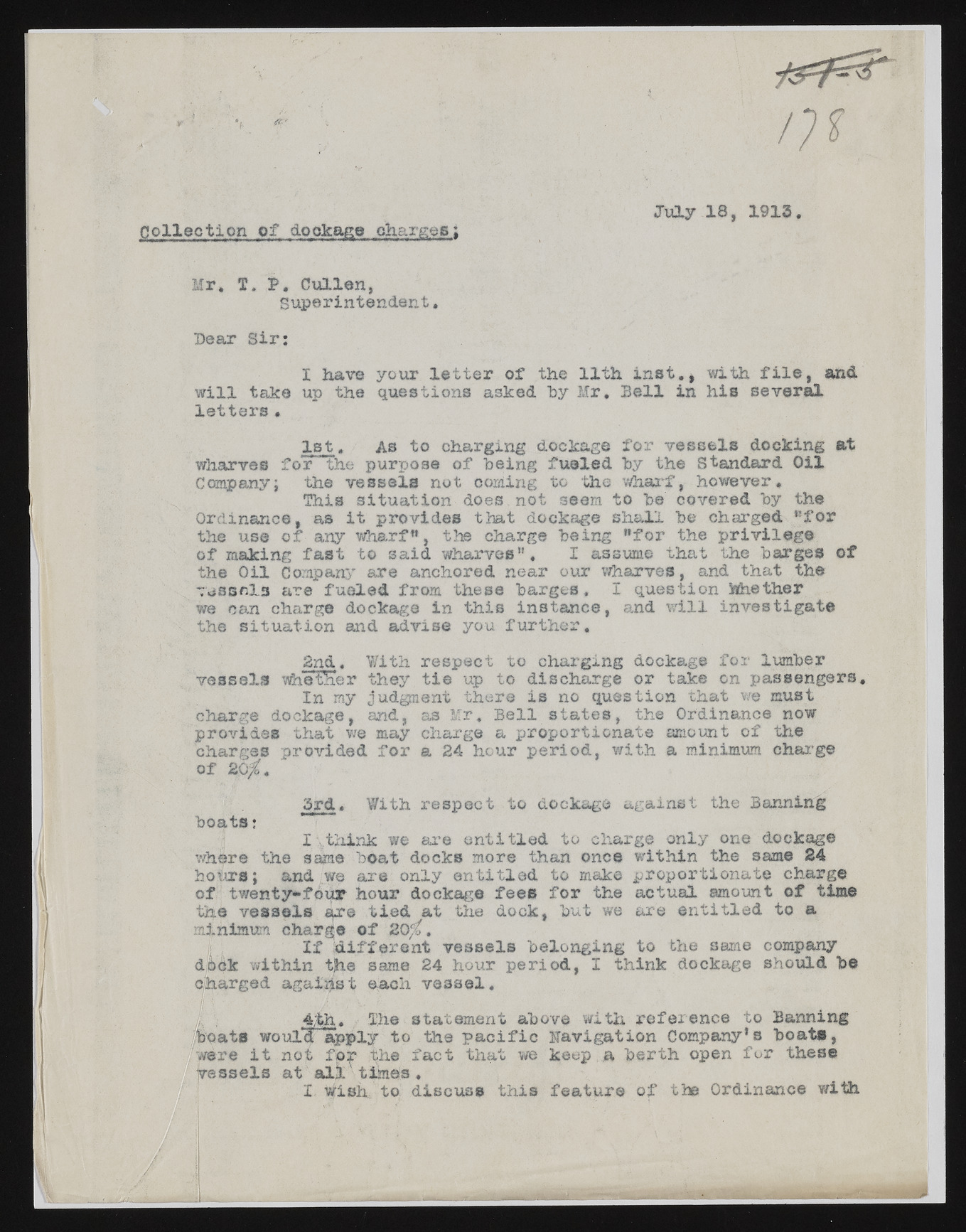Copyright & Fair-use Agreement
UNLV Special Collections provides copies of materials to facilitate private study, scholarship, or research. Material not in the public domain may be used according to fair use of copyrighted materials as defined by copyright law. Please cite us.
Please note that UNLV may not own the copyright to these materials and cannot provide permission to publish or distribute materials when UNLV is not the copyright holder. The user is solely responsible for determining the copyright status of materials and obtaining permission to use material from the copyright holder and for determining whether any permissions relating to any other rights are necessary for the intended use, and for obtaining all required permissions beyond that allowed by fair use.
Read more about our reproduction and use policy.
I agree.Information
Digital ID
Permalink
Details
More Info
Rights
Digital Provenance
Publisher
Transcription
C o lle c tio n o f dockage charges; Mr. T. P . C ullen, Superintendent, July 18, 1913. Dear S ir : I have your l e t t e r o f the 11th i n s t . j with f i l e , and w i l l take up the questions asked by Mr. B e ll in h is severa l le t t e r s . 1 s t . As to charging dockage fo r ve ss e ls docking at wharves fo r the purpose o f being fu e le d by the Standard O il Company; the vessels not coming to the wharf, however. This situ a tio n does not seem to be covered by the Ordinance, as i t provides that dockage s h a ll be charged " f o r the use o f any wharf” , the charge being " f o r the p r iv ile g e o f making fa s t to said wharves". X assume th at the barges o f the O il Company are anchored near our Wharves, and that the vossnla are fu e le d from these barges. I question Whether we can charge dockage in th is instance, and w ill in v e s tig a te the s itu a tio n and advise you fu r th e r , 2nd. With respect to charging dockage fo r lumber vessels WhVlKer they t i e up to discharge or take on passengers. In my judgment there is no question that we must charge dockage, and, as Mr, B e ll s ta te s , the Ordinance now provides that we may charge a prop ortion ate amount o f the charges provided f o r a 24 hour p erio d , w ith a minimum charge o f 20/, 3 rd , With respect to dockage against the Banning boats: I think we are e n t it le d to charge only one dockage where the same boat docks more than once w ithin the same 24 hoitrs; and we are only e n tit le d to make prop ortion ate charge o f tw en ty-fou r hour dockage fe e s fo r the actual amount of time the vessels are t ie d at the dock, but we are e n t it le d to a minimum charge o f 20/. I f d iffe r e n t vessels belonging to the same company dock w ithin the same 24 hour p erio d , I think dockage should be charged again st each v e s s e l. 4;th. The statement above with referen ce to Banning /‘boats would apply to the p a c if ic N avigation Company's b oats, were i t not fo y the fa c t that we keep .a berth open fo r these is s e ls a t a l l times , I w ish to discuss th is fea tu re o f the Ordinance with Z'

